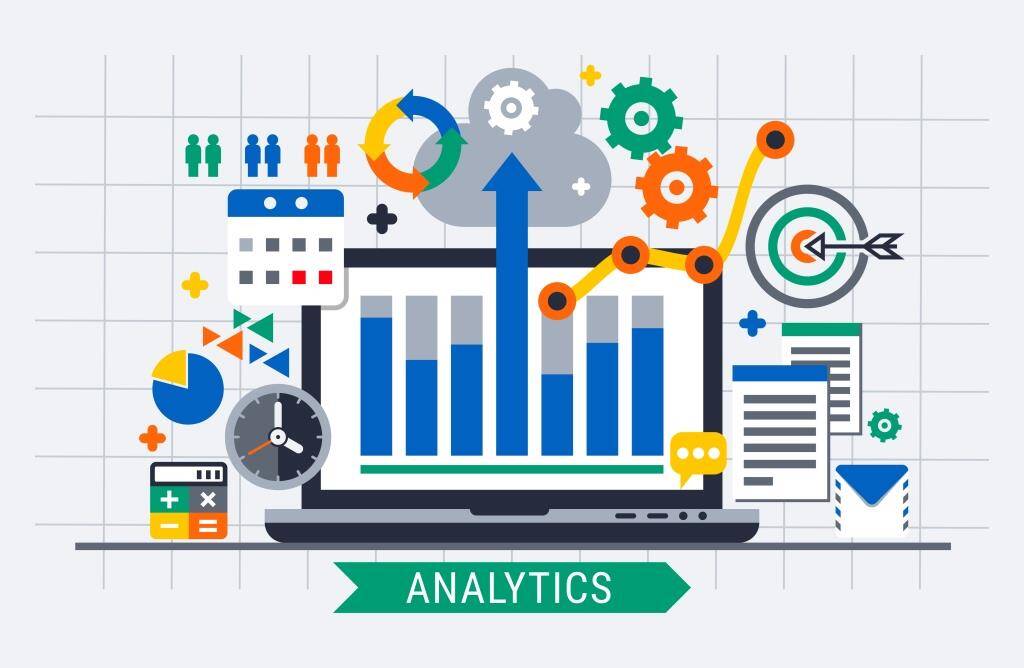Gain One-upmanship Through Effective Analytics Deployment
Make Best Use Of Growth: How Analytics Drive Better Strategies
By utilizing information understandings, companies can refine their operational techniques, anticipate market changes, and improve client involvement. The obstacle exists not only in gathering information however in properly interpreting it to drive tangible results.
Comprehending Information Analytics
Information analytics is a methodical computational analysis of information that makes it possible for companies to reveal purposeful patterns and insights. This procedure encompasses a variety of techniques, consisting of statistical analysis, predictive modeling, and data mining, which collectively aim to change raw information right into workable info - Analytics. By utilizing these methodologies, organizations can make educated decisions that are rooted in empirical evidence instead of instinct alone
The structure of information analytics hinges on its capability to deal with vast quantities of info from diverse sources. This consists of structured data, such as databases, and disorganized information, including social media interactions and consumer responses. With making use of specialized software and tools, experts can draw out and process this information effectively, determining trends and correlations that might not be promptly obvious.
Understanding information analytics likewise involves identifying the value of data quality and honesty. Precise and trustworthy information is important for meaningful evaluation; hence, companies must execute durable data administration methods. The iterative nature of analytics enables for continuous refinement and improvement of approaches, guaranteeing that companies continue to be nimble in the face of transforming market dynamics and customer actions.
Key Benefits of Analytics

One of the essential benefits of analytics is its ability to provide workable understandings. Organizations can swiftly examine huge amounts of information, uncovering patterns that might not be quickly noticeable.
An additional considerable benefit is improved customer understanding. Analytics devices allow companies to segment their audience, track customer habits, and personalize marketing initiatives. This targeted strategy not only boosts client engagement yet additionally drives greater conversion rates.

Implementing Analytics Approaches
To fully recognize the benefits of analytics, organizations need to adopt structured approaches for implementation. This begins with plainly specifying goals that line up with more comprehensive company objectives. By developing details, measurable results, organizations can concentrate their analytics initiatives on areas that yield the greatest return on financial investment.
Following, organizations should focus on information administration to ensure the integrity and safety of the data being assessed. This entails setting Continued up protocols for data collection, storage, and access while adhering to appropriate guidelines. Making sure top quality their explanation data is important for creating purposeful understandings.
In addition, cultivating a culture of data-driven decision-making is crucial. This calls for training staff members to analyze analytics searchings for and motivating partnership across departments. They are much more likely to integrate insights right into their day-to-day procedures. when teams recognize the worth of analytics.
Last but not least, organizations ought to frequently evaluate and improve their analytics methods. The landscape of data and technology is continually advancing, and remaining versatile will certainly enable organizations to utilize brand-new tools and approaches efficiently. By implementing these organized methods, organizations can maximize the impact of their analytics campaigns and drive sustainable development.
Tools for Effective Analysis
Effective evaluation relies upon a selection of tools that facilitate the removal of insights from information - Analytics. These devices can range from simple spreadsheet applications to sophisticated equipment learning systems, each serving an one-of-a-kind purpose in the logical process
Data visualization software program, such as Tableau and Power BI, plays a critical role in changing intricate datasets into reasonable graphical depictions. These devices enable analysts to recognize patterns and patterns rapidly, enabling more informed decision-making.
Analytical evaluation software, like R and SAS, uses innovative capacities for conducting extensive evaluations, including regression, hypothesis testing, and anticipating modeling - Analytics. These features empower organizations to attract purposeful final thoughts from their data, identifying prospective opportunities and risks
Moreover, data source administration systems such as SQL and NoSQL data sources supply the needed framework for helpful site saving and quizing huge quantities of information efficiently. They guarantee that data is organized and available for analysis.
Lastly, service knowledge systems incorporate different data sources, giving a comprehensive view of business efficiency. By using these devices efficiently, businesses can enhance their logical capacities, allowing them to establish techniques that maximize development and boost total efficiency.
Situation Researches of Success
Successful companies frequently utilize data analytics to drive impactful methods, as confirmed by numerous noteworthy instance studies. By utilizing these insights, Netflix has actually successfully customized its material recommendations, resulting in raised customer engagement and subscriber retention.

Furthermore, Starbucks employs data analytics to identify optimal shop locations and refine its product offerings. By examining consumer demographics and acquiring patterns, Starbucks successfully recognizes high-potential markets and customizes its food selection to neighborhood preferences, driving sales and customer loyalty.
These study illustrate that effective use of data analytics can cause strategic benefits, promoting innovation and growth within companies across different markets.
Final Thought
In conclusion, the combination of analytics into business methods considerably improves decision-making processes and cultivates lasting development. The reliable implementation of analytics devices further supports dexterity and development, allowing organizations to navigate affordable landscapes with higher precision.
Data analytics is a systematic computational evaluation of data that makes it possible for organizations to uncover purposeful patterns and understandings.Comprehending information analytics also involves identifying the value of information quality and integrity. Trustworthy and precise data is crucial for significant evaluation; therefore, companies have to execute robust data administration practices.Following, companies need to focus on data governance to ensure the stability and protection of the information being assessed.Effective companies frequently utilize information analytics to drive impactful approaches, as shown by a number of remarkable instance research studies.